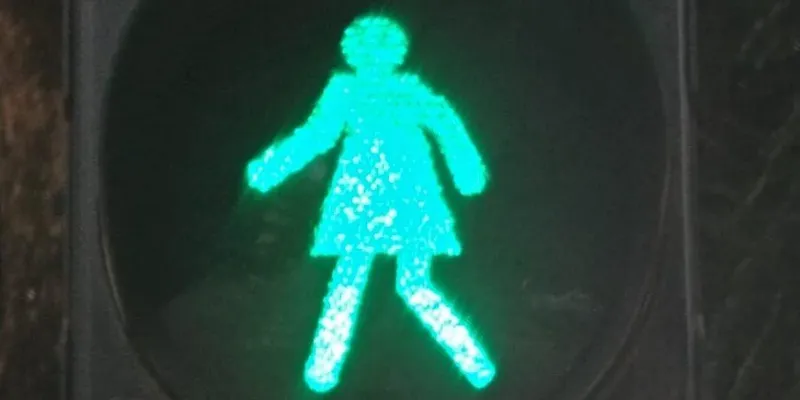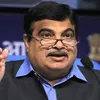Mumbai becomes the first Indian city to introduce female signage at traffic signals
The initiative is part of a larger citywide project called Mumbai Culture Spine, which has installed 240 pedestrian signals, replacing male stick figures.
In a bid to promote gender inclusivity, Brihanmumbai Municipal Corporation (BMC) has installed traffic signals that display female icons sporting triangular frock, a shift from the default representation of men. Mumbai has become the first city in India to do so.

Traffic signage featuring female icon on the streets of Mumbai. Picture credit: Twitter handle of Aditya Thackery, cabinet minister for tourism and the environment in Maharashtra.
The initiative is part of a larger citywide project called Mumbai Culture Spine, which has installed 240 pedestrian signals, replacing male stick figures.
Aditya Thackery, Minister for Tourism and Environment, Maharashtra government, who heads the project, said that the signage is “ensuring gender equality with a simple idea.”
However, netizens are divided on this initiative. Many have argued that putting up a sign does not help reduce gender-based crime against women, such as domestic violence and sexual harassment. "It does not deal with real issues that women face," wrote a netizen.
The minister took to Twitter and said, “Some may say this is only 'signalling,' but equality cannot be measured; it has to begin in the way we think. Each such step, matters!”
One user wrote that, although the change is subtle, the signals including women reflects a possible change in attitudes towards women. Actor Nimrat Kaur of The Lunchbox fame applauded the move and said it adds another feather in the cap of the maximum city.
While a first in India, countries like Germany and Australia started marking female icons in traffic signage in 2014 and 2017, respectively. In 2015, Vienna took a step further to promote inclusivity and introduced same-sex signage.
In January this year, out of 500 road signs warning pedestrian crossing, featuring male icon in the city of Geneva, Switzerland, 250 were replaced with six different female icons. This includes a pregnant woman, an older woman, a woman with afro hair, and two women holding hands.
It is also worth noting that India remains the most dangerous country for women, ahead of war-torn Afghanistan, and Syria, according to a survey conducted by Thomson Reuters Foundation in 2018, that saw participation from more than 550 experts on women's issues.
The poll cites reasons such as the high risk of sexual violence and being forced into slave labour.
Edited by Suman Singh








